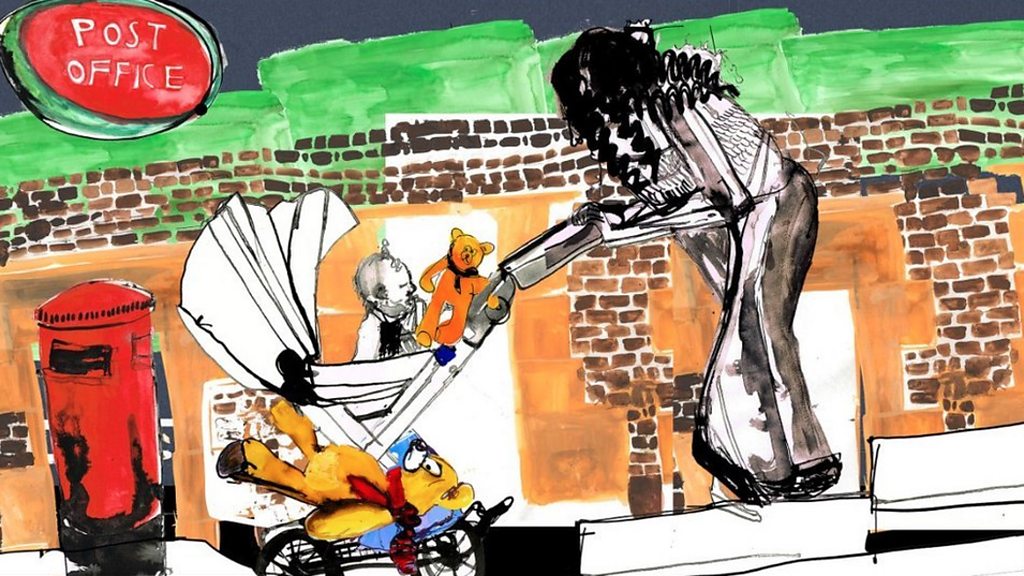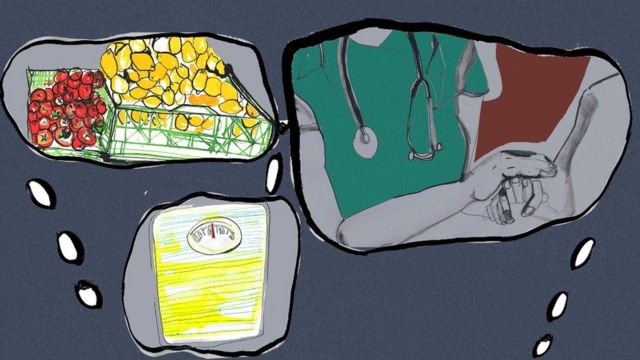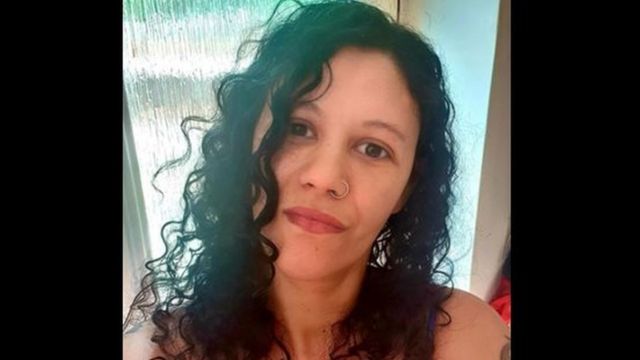As cases of domestic abuse rise during lockdown, people are forced to spend more time with their abusers. As Sara Cincurova explores, disabled victims can face particular challenges.
“When you are disabled and live with your abuser, you are scared to talk,” says Ebere, a disabled survivor who was abused for years. “Particularly if you are trapped with him at home, or reliant on his money or care.”
Ebere, not her real name, has faced abuse throughout her life.
Born in Nigeria, she contracted polio as a baby and became a wheelchair-user. Her parents considered her disabilities a “curse” and physically and mentally abused her.
“I was treated like nothing. I was beaten up and threatened, unlike my siblings, without disability, who were treated with respect.”
Aged seven, Ebere was sexually assaulted by a family member. But when she tried to report it “my parents told me they would kill me if I spoke about it”. She felt “defenceless”.
‘I thought he was a gentleman’
According to UNICEF, disabled children are four times more likely to experience abuse and three times more likely to experience sexual violence compared to their non-disabled peers.
Eventually, Ebere fled to the UK on a student visa to study social care. “I presumed that I’d escaped abuse forever because I had fled my family,” she says, but it wasn’t to be.
She soon met a man and started a relationship.
“I thought he was a gentleman, a prince charming. But he turned out to be a perpetrator and a gambler. He became controlling and started raping me.
“Experiencing abuse for the second time affected me so much,” she says. “No-one knows what is happening behind those walls. I didn’t want to live anymore.”
Ebere didn’t know how to escape until a friend put a small phone in her incontinence pad so her ex-partner wouldn’t find it. It enabled her to call the police, and her partner was arrested.
But once she was free, she found it difficult to find wheelchair-accessible accommodation. Many refuges had steps into the building or rooms and doorways could be too narrow for her wheelchair. She also struggled to find places which had the resources to support her mental health needs.
“I stayed in hostels, hotels and refuges, but I wasn’t happy. I didn’t feel like there was inclusivity,” she says.
‘I experienced hell’
Slowly, over five years, Ebere rebuilt her life and now has her own home.
“I tell my story because I experienced hell and I don’t want anyone to go through what I had to go through.”
Lauren Avery, from Minority Rights Group International, which protects the rights of minorities says disabled women who have another intersecting identity, such as being a refugee, can face double discrimination.
“Firstly, they face a higher likelihood of experiencing violence. Secondly, they face barriers in reporting violence and accessing services.”
Avery says reports from around the world show violence against disabled women has intensified during lockdown.
Although no figures have yet been compiled, Women’s Aid said, pre-pandemic, disabled women were three times more likely to experience domestic abuse and more likely to experience multiple forms of abuse in their lifetime, compared to non-disabled women.

Avery says these figures need to be reflected in the support available.
“A one size fits all approach is clearly not working,” she says. “All clients should have the opportunity to say what their needs are as soon as they engage with domestic violence services. Then efforts can be made to make adjustments to meet these needs.”
Emma Dalmayne, an autistic woman from London, was 17 years old when she fled domestic abuse with her eight-month-old baby.
“I had been subjected to severe physical abuse, but I was also mentally abused. I wasn’t allowed to look out of the window or to use a phone. But I didn’t realise this was violence,” she says.
“Many autistic people might not realise that you don’t have to be hit to be abused.”
Emma too had to carefully consider how to escape.
“The night before I left, I was subjected to one of the worst beatings. I had made ‘too much noise’ while making my son a bottle in the kitchen and was kicked around on the floor like a football.”
The next morning, Emma went to the Post Office to collect her benefits – the only place she was allowed to go alone. “I hid a spare bottle and two nappies in the buggy, and left together with my son.”
On her way, she called a friend, who in turn called the police. Officers met them on the high street.
“I showed them my injuries, the bruising on my back and chest, and they took us to the local housing department,” Emma says.
When she arrived at the refuge, she sobbed with relief and fear. But she says her autism made the situation confusing and she would have liked more support and “clear instructions” about what to do next.
“The police should accompany you to the refuge, especially if you have difficulty navigating public transport,” she says. “Things should also be made more clear by refuge staff, such as directions to amenities in your new area.”

Emma agrees with Avery that support cannot be a one-size approach, especially if disability is involved.
During her violent relationship she was starved and her stomach had shrunk so she was unable to eat at the refuge. “But no-one asked me about it, and I was unable to communicate,” she says.
For Emma, offering up information without first being asked, is something she struggles with. As a result, she didn’t receive any therapy or treatment.
“Don’t assume that just because someone is verbal, they can communicate. When people look at me, they think ‘she’ll be fine, she can talk, she can explain what happened’. But I couldn’t.”
She says support workers should be trained to support people with disabilities.
“We might need help with budgeting and we should also see a dietician and a doctor when we are first brought in.
“We need to be put in a safe, quiet room, and be protected from further trauma, noise, and overwhelm,” she says.
Over-stimulation can lead to some autistic people experiencing meltdowns or shutting down.
When she left the refuge, Emma started to advocate for women who had faced domestic violence. She also became CEO of Autistic Inclusive Meets, an organisation focused on creating a community for autistic people.
“This is a matter dear to my heart. As an autistic person, it is so easy to get drawn into a situation where you blame yourself for the abuse. Providing help to disabled people is so important. Love shouldn’t hurt.”




